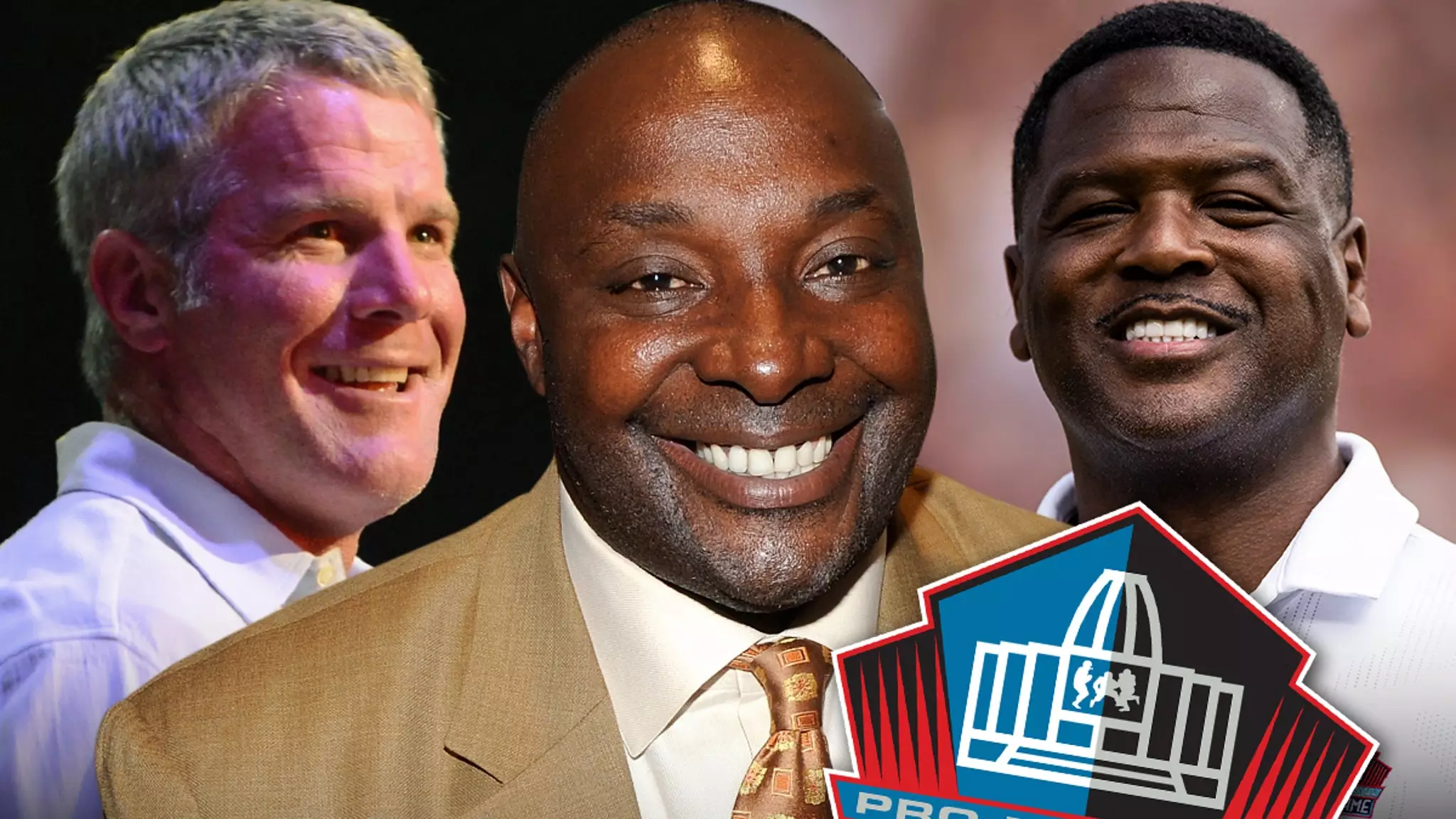In the realm of professional football, few figures loom as large as Sterling Sharpe, an exceptional wide receiver whose career has been overshadowed by injury and subsequent neglect from Hall of Fame voters. Recently, two Green Bay Packers legends, Brett Favre and LeRoy Butler, publicly advocated for Sharpe’s induction into the Pro Football Hall of Fame, reinforcing the argument that his contributions deserve to be immortalized in Canton. Their passionate endorsements highlight an undeniable truth: Sharpe’s talent and accomplishments warrant recognition.
Sterling Sharpe’s career spanned just seven years, yet it was marked by extraordinary achievements that challenge the traditional metrics used to evaluate Hall of Fame candidacy. With a staggering total of 595 receptions for 8,134 yards and 65 touchdowns despite facing debilitating toe and neck injuries, Sharpe’s statistics are indicative of his elite skill set. The NFL was arguably a different era during Sharpe’s tenure, and the head-to-head matchups he faced were fierce. Butler’s assertion that, had injuries not curtailed Sharpe’s career, he could have been the “Greatest of All Time” adds credence to this argument, illustrating how fleeting moments can shape legacies.
Brett Favre’s reflections on Sharpe paint a vivid picture. Describing Sharpe as “unguardable” and “unbelievable,” Favre emphasized that while Sharpe lacked in speed and height compared to other receivers, his football intelligence set him apart. This perspective is crucial, as it broadens the parameters by which we evaluate players. Football is not merely a game of physical attributes; it is also a sport that demands strategic thinking and mental acuity. Favre’s insights challenge the status quo, suggesting that true greatness might not always be measured in conventional stats. Instead, the intangibles that Sharpe brought to the field—his preparation, adaptability, and vision—are qualities that make him a candidate worthy of recognition.
As Sharpe enters the Hall of Fame discussions as one of five finalists this year, there is palpable excitement mixed with trepidation. Football fans and analysts alike muse about the inevitability of his eventual induction, especially given that his former coach, Mike Holmgren, is also a finalist. However, this situation also raises questions about the criteria for Hall of Fame induction and why Sharpe has been overlooked in previous years. Why should a player’s legacy be tainted by the cruel caprice of injuries?
The anticipation surrounding the announcement of this year’s Hall of Fame class, which will take place during Super Bowl week in February, serves as a reminder of the long-overdue acknowledgment that Sharpe deserves. Many in the football community hope that both he and Holmgren find their rightful place alongside other legends. The narrative surrounding Sharpe’s career is one of brilliance interrupted, but the hope remains that his story will finally culminate in the recognition that he so richly deserves.
Sterling Sharpe’s remarkable skills, his impact on the game, and the compelling testimonials from those who played alongside him create a powerful case for his induction into the Hall of Fame. The time is ripe for a reevaluation of what it truly means to be a Hall of Famer, and Sharpe’s name must undoubtedly be a part of that conversation.

Leave a Reply